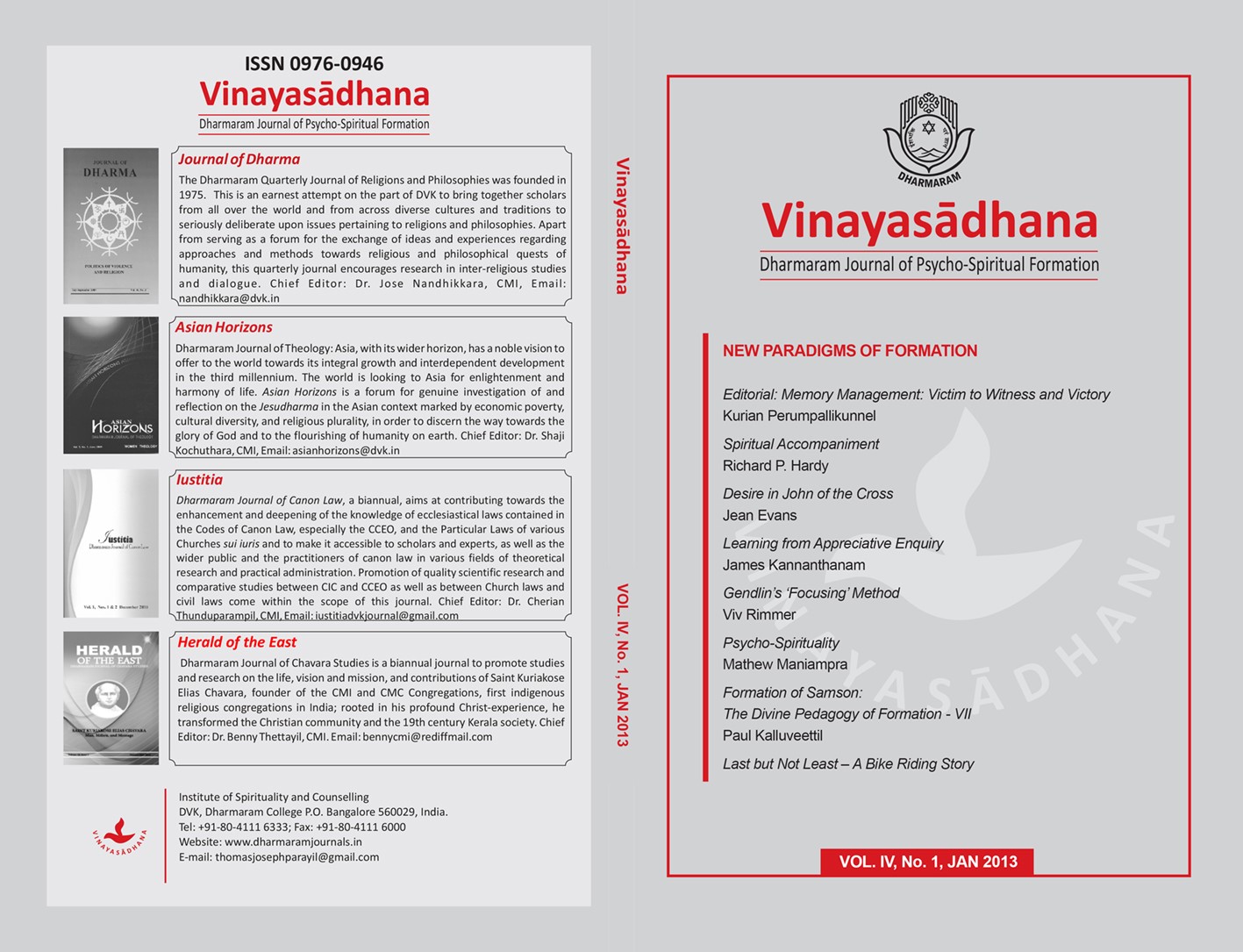A New Paradigm for Formation
Learning from Appreciative Inquiry
Keywords:
Appreciative Inquiry (AI), Organization Development (OD)Abstract
In the changing scenario of the world and the new mindset of people, formation of priests and religious calls forth for a paradigm shift. Appreciative Inquiry (AI) model which found great impact in Organization Development (OD) gives a viable alternative for the conventional approaches in formation. It shifts the focus from seeing the world and people as problems to mysteries with positive possibilities. Paradigm shift is, then, from deficit model to appreciative model. Every person and situation contains seeds of vitality and hope on which brighter future can be created. As human beings are creator of their reality, much depends on formees and formators what future they make. With the 4 -D method of AI – Discovery, Dream, Design and Destiny, the work of formation can be exciting experience for formators of journeying with the formees discovering their “life -forces “and directing them for the realization of the goals of the priestly and religious life. In place of a mass formation, AI perspectives give a personalized formation emphasizing the utilization of personal potentials for the goals of the Kingdom. The co -creative approach of AI leads to natural accountability and commitment. It vibrates positive emotions and creates a healthy world around.
References
Bennis, W. G. (1969). Organization Development: Its Nature, Origins, and prospects. California: Addison -Wesley Pub. Co., Inc.
Carr, A. (2004). Positive Psychology, The science of happiness and human strengths. New York: Brunner -Routledge Publications.
Clark, D. R. (2012). Theory X and Theory Y http://www.nwlink.com/~donclark/hrd/history/xy.html, retrieved on 25/8/2012
Cooperrider, D. L. & Others (2000). Appreciative Inquiry Rethinking Human Organization Towards a Positive Theory of Change. Illinois:Stipes Publishing.
Famous Quotes, http://www.quotes.stevenredhead.com/AlbertEinstein.html, Retrieved on 15/09/2012
Kannanthanam, J. (2006), Formation for Love in Religious Life.
Sanyasa Journal of Consecrated Life, 1(1): 79 -90.
Kelm, J. (2005). Appreciative Living: The Principles of Appreciative Inquiry in Personal Life. Wake Forest (NC): Venet Publishers
Kelm, J. (2007). Appreciative Living: Getting Started. www.AppreciativeLiving.com, Retrieved 28/3/2009
Linley, P. A. & Joseph, S. (Ed.) (2004). Positive Psychology in Practice. San Francisco: John Wiley & Sons, Inc.
McGregor (n.d.). Theory X and Theory Y http://www.scribd.com/doc/7184174/Douglas -McGregor -Presentation, Retrieved on 14/09/2012.
Orem, L.S, & Others (2007). Appreciative Coaching: A Positive Process for Change. San Francisco: John Wiley & Sons, Inc.
SAIDI (2007), Course notes, Module 1: Organization and Systems, School of Organization Development, Antipolo, Philippines.
Winseman, A.L. & Others (2003). Living your strengths. New York: Gallup Press.


